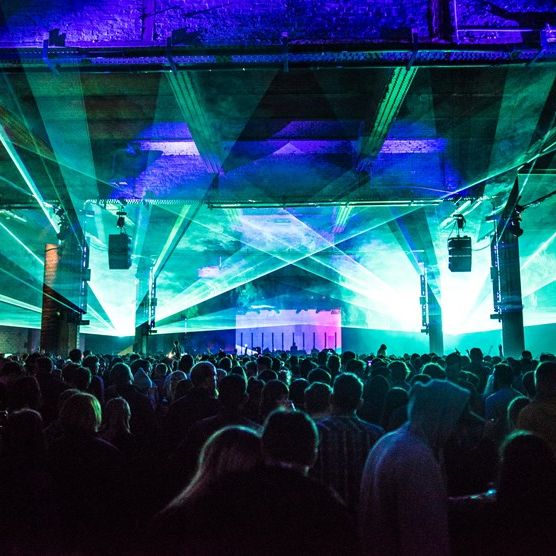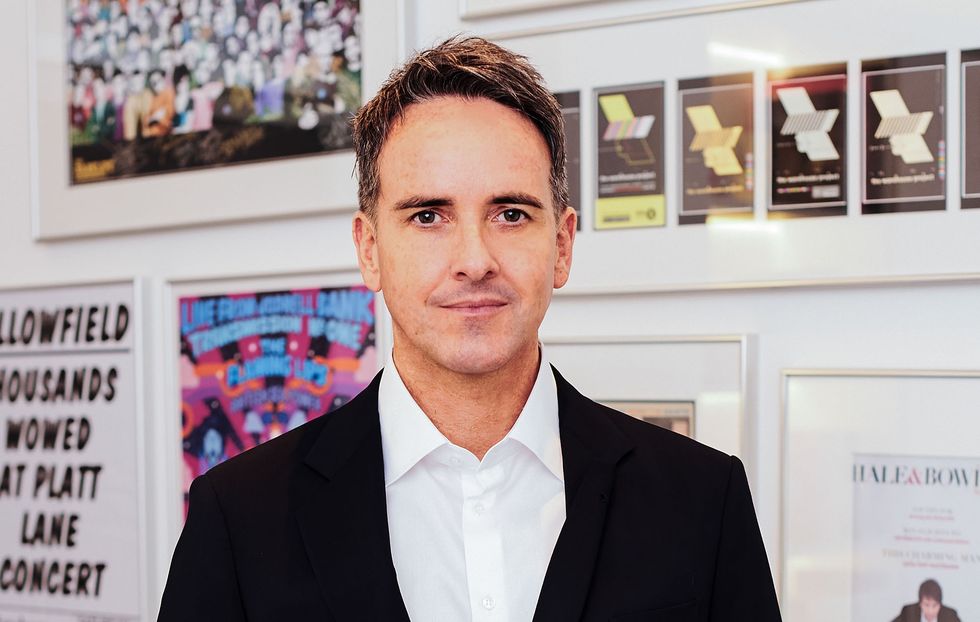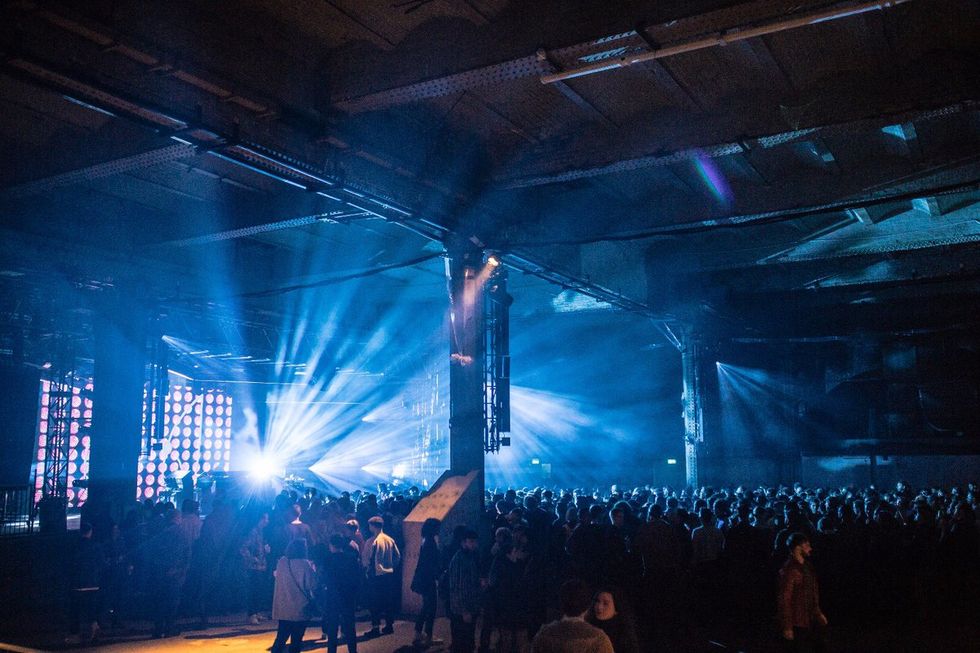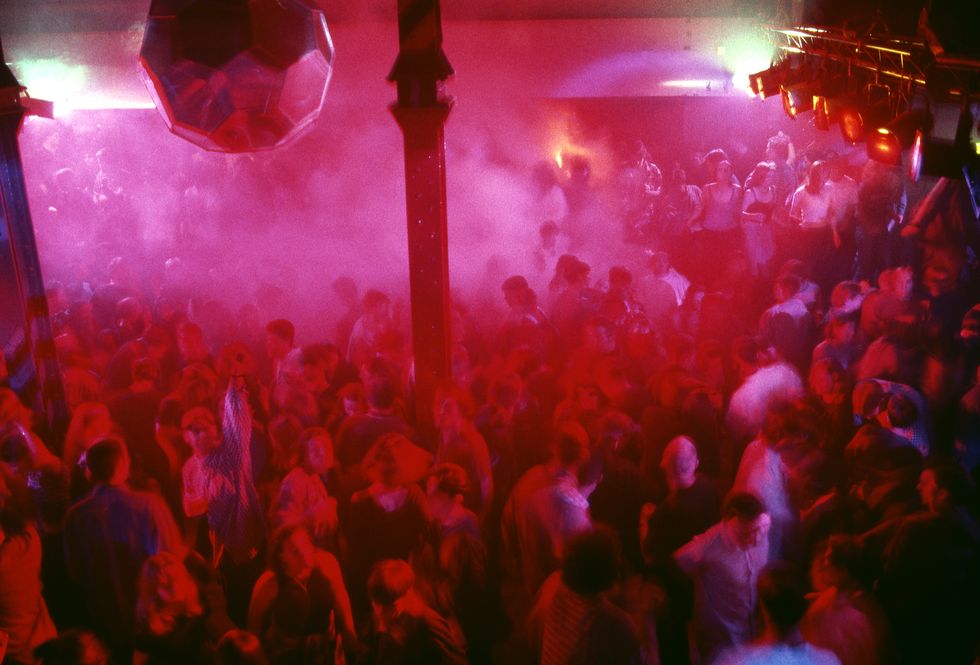The big British night out is endangered. Last year 21 per cent of clubs across the country closed after five steady years, and the Guardian reported last year that roughly £200 million has been wiped off the value of the UK's clubs since 2013. Some fear the lights might be coming up on UK club culture as we know it.
London lost 50 per cent of its venues between 2011 and 2016, according to the Mayor's office. Despite numbers stabilising since, Amy Lamé, Sadiq Khan's 'night tsar', has come in for criticism from some quarters, especially when Hackney Council brought in curfews – 11pm in the week and midnight at weekends – for East London's vibrant clubs and bars in July 2018. Neither Lamé nor Khan have power over licensing laws, though, and the impression that our nightlife is now at the mercy of developers lingers.
It's not just London either. Notable recent casualties include Mint in Leeds, which closed in March blaming redevelopment around its Harrison Street base for licensing changes. So what do we do?
Sacha Lord has a plan. He's one of the key men running Manchester clubbing institution Warehouse Project and Parklife festival, and since June 2018 he's been Greater Manchester's night tsar, advising mayor Andy Burnham on the region's nighttime economy. The plan Lord's come up with for Burnham - the Greater Manchester Night Time Economy Blueprint - is specifically aimed at the city's 10 boroughs, but it might just be the fillip that Britain's nightlife needs.
On the phone, Lord's earnest and, today, particularly buoyant. "I've just seen David De Gea's signed a four-year deal at United," he explains, "so that's made my day."
Lord, who's from Wythenshawe in south Manchester, has been putting on nights in Manchester since 1994. He founded Warehouse Project with his friend Sam Kandel, holding their first party in 2006 in the old Boddingtons brewery in Strangeways to the north of the city centre. The high-security prison of the same name was next door, and Lord and Kandel got complaints from the warden that sound from Public Enemy's set had turned the prison into a rave.
He's a fan of Lamé's work in London and he's upbeat about the state of the UK's nightlife, despite a 27 per cent drop in Greater Manchester's clubs between 2010 and 2017. For one thing, he says, the stats don't tell the full story - the 'club' category includes bars that play music rather than the specialist nightclubs you might immediately think of.
The blueprint picks out five priorities: safety, transport, diversity, skills and wellbeing, and regeneration. With fewer police on the streets after nearly a decade of austerity, the blueprint says people are feeling less safe on nights out. So, safety havens where clubbers can chill out for a bit, or sober up, or charge their phones and find their mates, or have a cup of tea and talk, have been trialled in Manchester and will soon hit Wigan and Bolton. So far they’ve proved a hit, easing the burden on the NHS and proving incredibly cost effective: last New Year’s Eve, Warehouse Project's haven stopped 18 people having to use the NHS, and only cost £500 all in.
Transport is less easily fixed. Outside of London, privatised buses, trams and trains tend to stop running around midnight. It's not just clubbers scrapping over surge charge Ubers: Lord says that 53 per cent of people working in Manchester's nighttime economy earn less than the real living wage, and travel takes a big chunk of that.
"They're being really penalised," Lord says. "If they finish at a bar then there's no trams, there's no trains, no buses they're having to pay for taxi, and they're earning eight quid an hour. It's not fair. They should be thought about."
Burnham has just announced another push for more local control of transport, though parts of the country without an ex-Cabinet minister as a metro mayor don’t have as much leverage. Plus, as another segment of the blueprint points out, clubs and bars won’t have a stable future if their employees are on zero hours contracts and don’t see a way of progressing up the ladder, so a business advice service is in the works as well as research into what skills and training workers need.
The last two priorities – regeneration and diversity of openings – are intertwined. Lord remembers when shopping megalith the Trafford Centre opened and sucked the life out of high streets across Greater Manchester. Internet shopping ratcheted that pressure up, and towns around the country need to stimulate their nighttime economies to make up for it. Take Altrincham, for instance. "I think our bastion of culture was a Wetherspoon's and that was practically about it," Lord says.
But a revived covered market "triggered this whole regeneration of the town, some really good independent bars, independent restaurants" and a Purple Flag award for a diverse and safe night out followed last year.
A decade of austerity hasn’t helped. But Lord says local decision-making is vital to getting things moving, as Burnham has in Manchester: "I think what the mayor's doing, trying to drag as many powers into the city region as possible, is a great start."
Then there’s that tale as old as time, that song as old as rhyme: "You'll find a nightclub or restaurant or bars been operating for many years then a developer comes along, whacks up a load of apartments next door, and before you know a couple people are complaining." License reviews can follow, and expensive refits or closure soon after. Fortunately, there’s movement there too. The ‘Agents of Change’ principle entered law last summer, and refigures the balance: a developer has to soundproof their new building if it's near a club or bar; if the club gets a massive new soundsystem, the responsibility is theirs. Lord notes there have been "lots of sad instances in London, actually, where Agent of Change hasn't worked," but the principle could be critical in places where gentrification hasn't taken hold yet.
Warehouse Project settles into new digs with this new season. Abandoning Store Street, the former air raid bunker under Piccadilly station which had become a spiritual home over two stints from 2007 to 2011 and 2014 to 2018, it’s moved to the larger Mayfield Depot nearby. Lord says the disused railway station "feels so industrial, it feels very gritty, it feels very grimy - it's everything that I want from Manchester".
It’s technically illegal to discuss Manchester and club culture without also talking about the Haçienda, Factory Records’ legendary home of acid house, money pit and eventual albatross. Lord was a regular after an aborted attempt to get in wearing his dad’s suit and tie. "The Salford thugs acting as security were like, 'Fuck off'," he remembers. He walked home past a queue of clubbers in tie-dye shirts, and came back the next week in the correct gear. It blew his mind.
The late Tony Wilson - broadcaster, Factory Records and Haçienda boss and, as his headstone has it, "cultural catalyst" - became a friend after Lord got his own night at the club in July 1994. Lord remembers him warmly as a man treading a "fine line between genius and mental". He initially thought Wilson was gratingly pretentious, "but when he was quoting all these people who I'd never heard off and speaking in Latin and stuff, that was just him." Lord was less keen on Wilson's legendarily spirited Weimaraner, William: "It bit me three times. I hated that dog."
They stayed in touch after the Haçienda closed in 1997, and even when his health was failing Wilson came to look at Store Street before its first gigs on Easter 2007. "By then cancer had really taken hold of him," Lord remembers. "He was very, very frail. And I was really shocked and surprised to see him in such a bad way. But I'm over the moon that he saw Store Street. And he brought that fucking dog with him."
Comparisons between Lord and Wilson, two Manchester catalysts, are tempting. "He was Mr Manchester," Lord says firmly, "and there'll never be another Tony Wilson."
When we speak it’s four days until from the Aphex Twin gig which signals the start of Warehouse Project's 2019 season. "Every time he does play it's with a lot of thought that goes into the whole thing," Lord says. "I mean, the first time he played for us, on his rider he asked for five of the UK's top gurners."
"As the beat dropped they all turn around - they were wearing Aphex t-shirts and they were all gurning. The kids in the first 15 rows, I think thought they'd entered hell."
Meanwhile, UK clubbing at large is still in purgatory. But if – and there are a few large, dense ifs to navigate – cities and towns around the country recognise why their nighttime economies matter, and take the initiative to protect them, there's hope yet.
Like this article? Sign up to our newsletter to get more delivered straight to your inbox
















